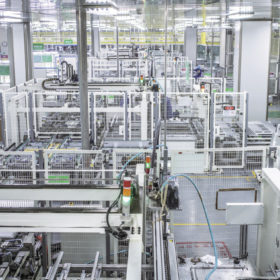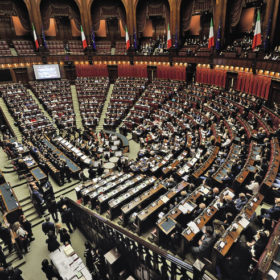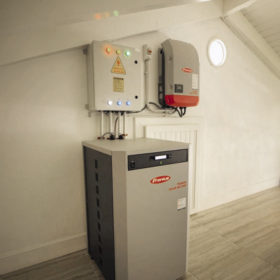Inverted sustainability
Sustainability is undoubtedly the prime motive for the very existence of the solar industry. After having rolled out some 600 GW globally, there are new challenges ahead. It is not enough to simply surpass fossil fuels in terms of environmental outcomes, but efforts have to be made to make solar sustainable – period. In the EU, a range of new projects and legislative acts determine the direction, with some suppliers of solar products already undergoing the process of identifying the sustainability hotspots.
PV + e-mobility = economic development
Mobility in rural Kenya is currently flooded with unsustainable CO2-emitting motorcycles that pose a threat to the environment and public health. But the electric tricycle is an environmentally friendly alternative, and Solar E-cycles – a homegrown Kenyan startup – believes a leasing model could unlock a ton of three-wheeled potential.
Recognizing Europe’s battery innovators in 2020
At the end of June, The smarter E recognized innovators from across the energy space in its annual awards, including the ees Award for energy storage. Held as a virtual ceremony for the first time this year, the award jury singled out a plug-and-play solution for second-life EV batteries, a cost-optimized battery for commercial vehicles, and an innovative battery that is built from abundant materials and literally runs on thin air, as worthy of a spot on the big stage. pv magazine takes a closer look at the 2020 ees Award winners.
Reducing solar’s environmental impact through ecolabels
It is undeniable that easy access to energy has provided tremendous benefits to humankind over the last several decades. But that access has come at a price – one that society only discovered after the fact. From the thousand-year half-lives of spent nuclear fuel to the climate change impact of fossil fuels, access to energy has had a high environmental cost. Renewable energy, especially solar, seeks to provide that same access without the environmental cost. But what is the environmental impact of solar panels and inverters? Is society once again seeking to benefit from an energy source without understanding and addressing its environmental impact? Not this time, writes Green Electronics Council CEO Nancy Gillis.
Limited risk of PV for landfill
While it’s far from ideal to have solar modules dumped in a landfill, in much of the world today, it’s a likely outcome. The silver lining to this dark cloud is that research published this year indicates that PV modules likely pose limited risks to human health, even using the most conservative assumptions. Garvin Heath, a senior scientist with the National Renewable Energy Laboratory (NREL) coordinated the study in his role as the Operating Agent of the International Energy Agency’s Technology Collaboration Programme on PV Power Systems (PVPS), Task 12 – Sustainability.
pv magazine test September 2020 results
The first chart to the right details the meteo station data (irradiance and ambient temperature) for September 2020. The daily temperature and irradiance data is missing for Sept. 26 due to a power cut. The average bifacial boost for September 2020 is 6.3%. Bifacial boost is defined as the extra energy yield of the bifacial […]
A unique position
Solar PV could disrupt the fossil fuel industry and help with two of the biggest sustainability challenges of our times: biodiversity loss and food production. In Q1 2021, pv magazine’s UP initiative will shine a spotlight on agrivoltaics – the combination of agriculture and solar energy – in recognition of this emerging market. The goal is to understand the potential benefits, and economic, political and technical challenges of such an innovative partnership.
Broken promises: legal recourse for retroactive FIT cuts
Generous feed-in tariffs, a short-lived boom and retroactive cuts – the early stages of large-scale solar deployment in Europe followed a regrettable pattern. Project developers have increasingly turned to the legal system for restitution, and many have been successful, writes Daniel R. Meagher, a partner in Winston & Strawn’s international arbitration practice.
sonnen goes local
Australia’s strong residential rooftop PV market segment has long been seen as ripe for the picking for battery storage suppliers. But things have been somewhat slow to develop, due to the capital outlay and hangovers from former rooftop subsidy schemes. This hasn’t stopped Germany’s sonnen from setting up battery assembly at a recently defunct car factory in South Australia, which sonnen Australia’s CEO Nathan Dunn sees as a good news story for the sector.
Coming soon to Turkey: battery rules
While Turkish policymakers are taking steps to foster the adoption of battery storage systems, they have yet to put a comprehensive regime in place. But the opportunity is there if the sizable uninterrupted power supply market is any indication, reports KRC Consulting Group’s Hakki Karacaoglan.










